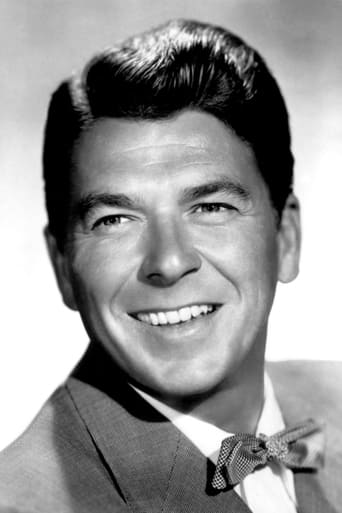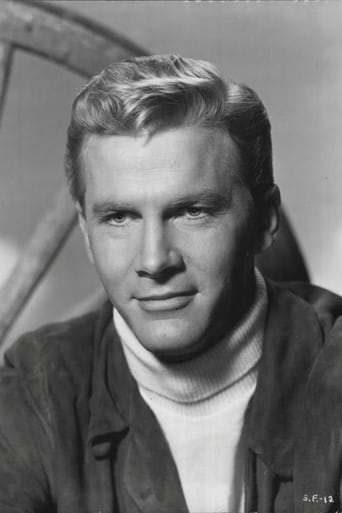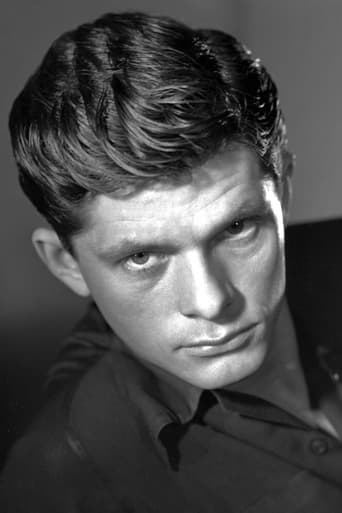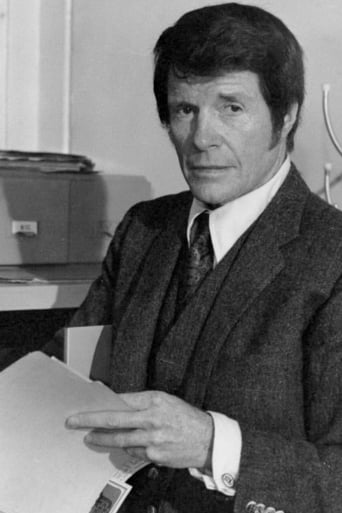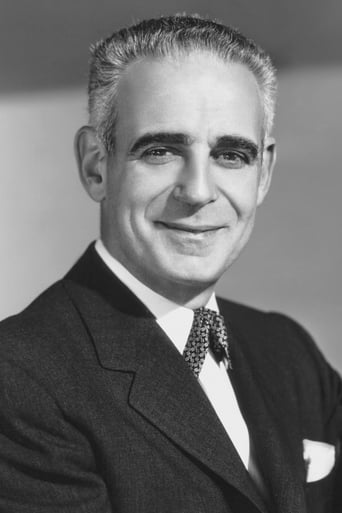SoftInloveRox
Horrible, fascist and poorly acted
GarnettTeenage
The film was still a fun one that will make you laugh and have you leaving the theater feeling like you just stole something valuable and got away with it.
Aubrey Hackett
While it is a pity that the story wasn't told with more visual finesse, this is trivial compared to our real-world problems. It takes a good movie to put that into perspective.
Paynbob
It’s fine. It's literally the definition of a fine movie. You’ve seen it before, you know every beat and outcome before the characters even do. Only question is how much escapism you’re looking for.
agabustony
One reviewer found this movie quite hilarious. The film does have an unbelievable premise, that the military would actually send some one to investigate the POW camps. In fact in the opening scene, Harry Morgan (of MASH fame) tells Reagan that they have heard of atrocities but have no proof. but how did they hear? And why do they need proof? As if the Communists would actually be forced to behave humanely. That first scene was funny because Morgan comes off like he did as Gannon on Dragnet, the same stilted manner of speaking. Anyway, the film does portray the atrocities in a rather sobering way. And one neat thing is you get to see all these new actors in early roles: Strother Martin, Dewey Martin, Steve Forrest, Darrly Hickman, Dick Sargent and even Stewart Whitman. And One of the guards was Wesley Levy who played the communist leader on Satan Never Sleeps with William Holden. But it was a propaganda movie and so a bit forced and wooden except for Reagan. He was good.
bkoganbing
The only big screen film that dealt directly with Ronald Reagan's anti- Communism was this film made post Korean War in 1954. By that time tales of North Korean atrocities were pretty widely known and at least the subject matter of Prisoner of War was generally accepted. As to how well done this film is another matter.It's a bottom billed B picture where Ronald Reagan is given an assignment to actually infiltrate a prisoner of war camp in North Korea to see if the rumors of atrocities are true. His fellow prisoners are cross section of the American GI and as Reagan says they all have a breaking point. Toughest of the lot is Steve Forrest, easiest is Dewey Martin in their hut. Oscar Homolka is a strutting Russian colonel is an 'advisor' to the North Korean commander. No doubt he studied the techniques of Dr. Mengele from the last war and he's experimenting on the men the way Dr. Pavlov did with lab rats. He does find out in an unexpected way just where some people's breaking points are.With some better writing and directing and production values this could have been a classic like that other Prisoner Of War film released by Paramount the year before, Stalag 17. But MGM wasn't too heavily invested in this one as you can plainly tell by watching.
taggerez
I would suspect that some of the negative reviews of this movie stem from the fact that 1.) Ronald Reagan is the star and 2.) it would tend to fall in the very small category of anti-communist films produced by Hollywood. But for people who like good movies, this is a pretty good little film.More importantly, the film has a basis in fact. The screenwriter, Allen Rivkin, drew on true stories from those who suffered in those camps. When the Army transport "General Walker" docked in San Francisco carrying the first group of returning American POWs from North Korea, Rivkin was there and personally interviewed sixty of them. These ex-POWs told him of the harsh treatment, lack of food, freezing weather, poor medical treatment, and brainwashing sessions that were just some of the horrors they had lived through. In addition, Capt. Robert H. Wise served as the technical adviser on the film. Wise, who had spent a year as a prisoner of the Germans during World War II, spent three years in a North Korean prison camp. He nearly starved to death, dropping 90 pounds during his ordeal. His input lent invaluable veracity to the details of the film.So when you watch the scenes of torture, deprivation and mind control in "Prisoner of War," they are authentic. As for the statement that these scenes become homo-erotic "beefcake in bondage," the unfocused mind can conjure many things, but more often than not a cigar is just a cigar.A small film shot on a low budget, there is much to recommend "Prisoner of War" including its treatment of the subject post-war American defectors. A handful of Westerners opted to stay with the communists after the war (as opposed to thousands and thousands of captured Chinese and North Koreans who preferred not to go back to the Reds)and this film has an interesting twist on the subject.Might make a good B feature with "The Manchurian Candidate."
dinky-4
It's hard to imagine much of a paying audience for this movie which was rushed into production early in 1954 to capitalize on news stories about ill-treatment of American POWs inside North Korea. Many of these stories dealt with the disturbingly high number of POWs who seem to have collaborated with the enemy in various ways and there was ominous talk that something called "brainwashing" might be responsible for this sorry state of affairs. MGM's problem was to work this material into a commercial property which would patriotically support "our boys" while, at the same time, acknowledge those troubling charges of collaboration. The movie tries to solve this dilemma by showing American POWs indeed confessing to "war crimes" but stressing the fact that this occurred only after they'd been subjected to prolonged, unrelenting torture of both a physical and psychological nature. To adequately make its case, the movie presents scenes of torture intended to be persuasive and yet acceptable to a general audience. These scenes probably remained in the viewers' memory long after the movie's more routine and predictable moments had been forgotten. Three scenes in particular stand out. (1) John Lupton, later of TV's "Broken Arrow" series, is shown kneeling with his arms pulled back and over a horizontal pole passing behind him. Heavy rocks are tied to his hands, painfully stressing his wrists, elbows, and shoulders. Each time the pole is lifted and then dropped, Lupton groans in torment. (2) Steve Forrest and a dozen or so other POWs are forced to lie face-up in open graves for several days and nights. They're exposed to the elements, given no food or water, and become increasingly filthy. Eventually they're taken from their graves and lined up before a firing squad for what proves to be a mock execution. (3) Steve Forrest, Robert Horton, later of TV's "Wagon Train," and six other POWs are crucified with ropes to wooden frameworks at the top of a hill and left to suffer long, slow agonies. All these tortures were attested to as being authentic but their impact is somewhat diminished by casting as their victims only young, handsome actors with virile physiques which are shown off by having the actors wearing nothing but dogtags, undershorts, and a gleaming coating of studio sweat. The result is a parade of homoerotic "beefcake in bondage" usually found only in sadomasochistic magazines! In other respects, the movie benefits from MGM's film-making professionalism and there are just enough crowd pleasing moments of dialog and characterization to take the edge off some of the movie's grimness.(May 2010) Revisiting this movie after more than 10 years have passed, one can't help but be struck by its competency as a piece of film-making. We used to take this nuts-and-bolts stuff for granted but compare the big-studio professionalism of "Prisoner of War" with the sloppy work done, especially in the script department, with "The Hanoi Hilton" -- a 1987 film which tells a similar story about the Vietnam War. Both films are failures but at least "Prisoner of War" isn't an embarrassment.
